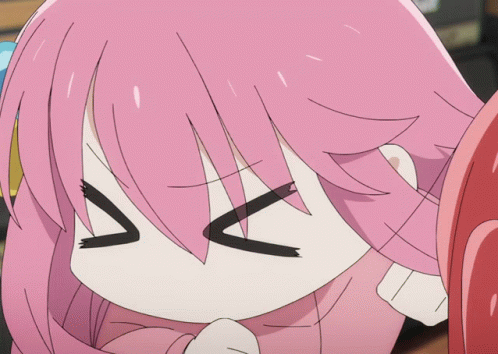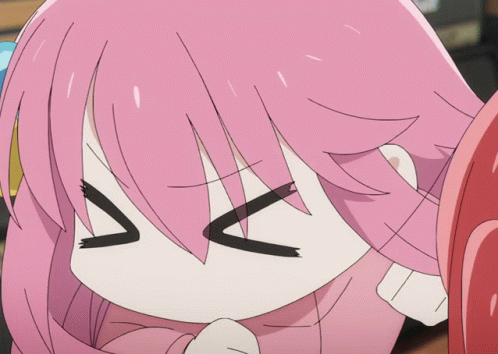Pancakes
Curated From randomc.net Check Them Out For More Content.
 |
Don’t touch the Bocchi |
Cheeky admission time: this post was supposed to come out about a month ago, until work decided otherwise. Dealing with repeated incidents and customer requirements isn’t fun, but hey, it’s all part of the experience (for good and bad – promotions can be interesting at times!), and so here we are, talking about…Bocchi? Yupp, that’s right it’s Patreon commission time, and you can thank our supporter Nicc for this one!
Writing this out just over midway through spring made me realize it was probably the best time to look back at 2022 and what, in my personal opinion, made Bocchi the Rock last year’s best anime and one of my guilty pleasures to date. Hindsight after all is 20-20, it’s easy getting mired in the details or overlooking things courtesy of winter holiday chaos, so being able to compare then and now is quite interesting seeing if prior opinions match up to your current mindset. In this regard I’m still a believer in the Bocchi, and not only because it’s pure, unabashed cute and wholesome fun. Oh no, there’s strength to this series, strength you definitely wouldn’t know from giving it a quick one over.
Right out the gate the thing to note about Bocchi the Rock is that it ticks off all the usual AOTY boxes. It’s a well-rounded story easy digestible with enough depth to provide some mental meat; it’s a cutesy production emphasizing the better parts of the late 2000s/early 2010s moeblob zeitgeist; and arguably most importantly, it was a true dark horse which came completely out of left field. Not that difficult seeing where such impressions originated: K-On-like synopsis? Hit or miss CloverWorks as producing studio? The aforementioned moeblob look? The sort of facets which are a dime a dozen these days, and not at all what you’d consider chart topping quality.
Ultimately it’s that deceptive visage which lends Bocchi the Rock its hidden power. One after all can point to the main driver of overcoming social anxiety or finding lasting friendship through shared passions being this show’s main selling point, but that’s only half the story: it’s how Bocchi the Rock handles these themes which gives it a major leg up.
Usually anime has one of two approaches with social anxiety, it either leans hard into blunt, almost cringeworthy brutality a la Watamote, or goes all in on comedy in the vein of Hitoribocchi. Finding a middle ground can often be difficult considering its sensitive nature, but it’s something which Bocchi the Rock does and for me does fairly well.
Star of the show Gotou Hitori after all is basically Watamote’s Kuroki Tomoko in all dressed in pink: she’s incredibly awkward, almost always in her head, and has absolutely no idea how to interact in a “normal” fashion. The difference? Hitori’s moments of embarrassment and shame are coloured with sufficient lighthearted humour to keep from spiralling down the melancholic path. You can feel for Hitori with every trip and fall, every chance seemingly blown thanks to foot being shoved firmly in mouth, yet never to the jarring degree when watching Tomoko do the same – it’s all adorable and, most importantly, easily relatable for many of us. There’s a good deal of sweet covering up the bitter, but nothing to the degree Hitoribocchi’s memetic acts were drenched which arguably reduced that series’ impact.
Moreso than Bocchi the Rock’s balancing act giving it a leg up, however, was its supporting cast. Very early on Hitori wound up in the care/clutches of Ijichi Nijika and Yamada Ryou, with her development being as much guided by them and the rest (especially Hiroi Kikuri) as her own actions. While very much deliberate in the usual wholesome slice-of-life ways (not likely to have such understanding friends that fast in real life), this manner of writing gave quick purpose to Hitori’s struggles and rewarded her for overcoming them, providing us with a good deal of catharsis and happy satisfaction as the girl continued advancing her musical dreams. If anything it shows just how important smart writing and actual character growth is when it comes to these sorts of themes, because without it Hitori’s trials and tribulations certainly wouldn’t have been as impressionable as they were – and such writing is critically important for separating oneself from the anime crowd.
All of that then leads to Bocchi the Rock’s cherry topper which is, lo and behold, that moeblob cutesy goodness – and some imaginative animation work. Whatever one’s overall taste for the CGDCT style, there’s no denying Bocchi the Rock had some fantastic scenes, particularly those involving Hitori panic attacks or mental wrangling. Add on the nature of these moments – i.e. Nijika and Ryou helping right Hitori versus serving as the vehicle for making jokes at Hitori’s expense – and it’s not hard seeing why a lot of people like me quickly fell in love with the show. By itself animation can make a show watchable, but it takes synergism with an appropriate story to make the final product special – and Bocchi the Rock did not fail in that regard.
In the end to sum it all up, Bocchi the Rock won 2022 anime’s race at RandomC because its whole easily was far greater than the sum of its parts. It may be saccharine moe, not have ufotable levels of animation, and lack the tried and true pulp story, but damn if it wasn’t a surprisingly fun, endearing, and very wholesome ride. Much like Kemono Friends emphatically proved so many years ago it’s never good only judging a book by its cover – more often than not you’ll miss the jewels like this.
